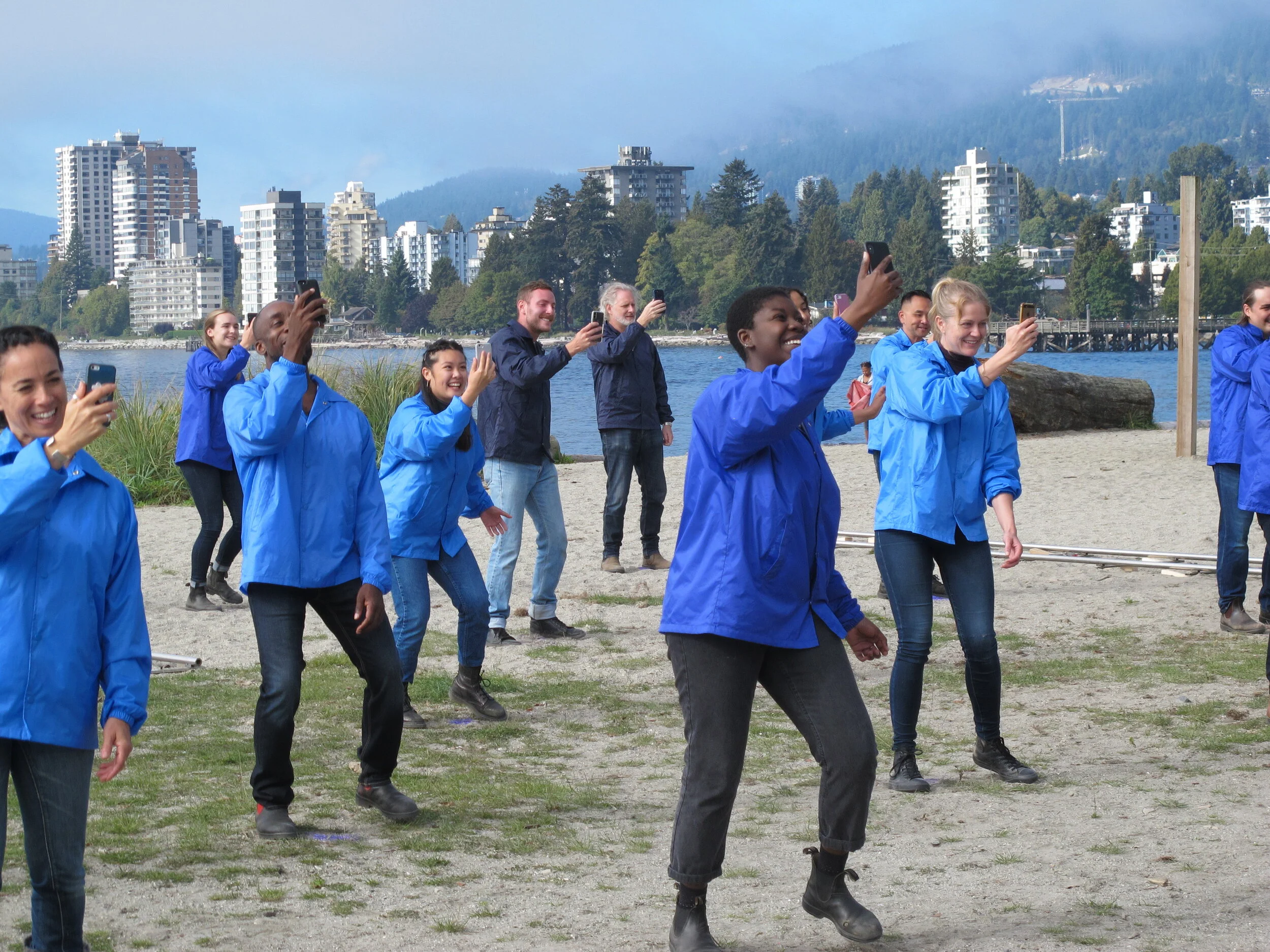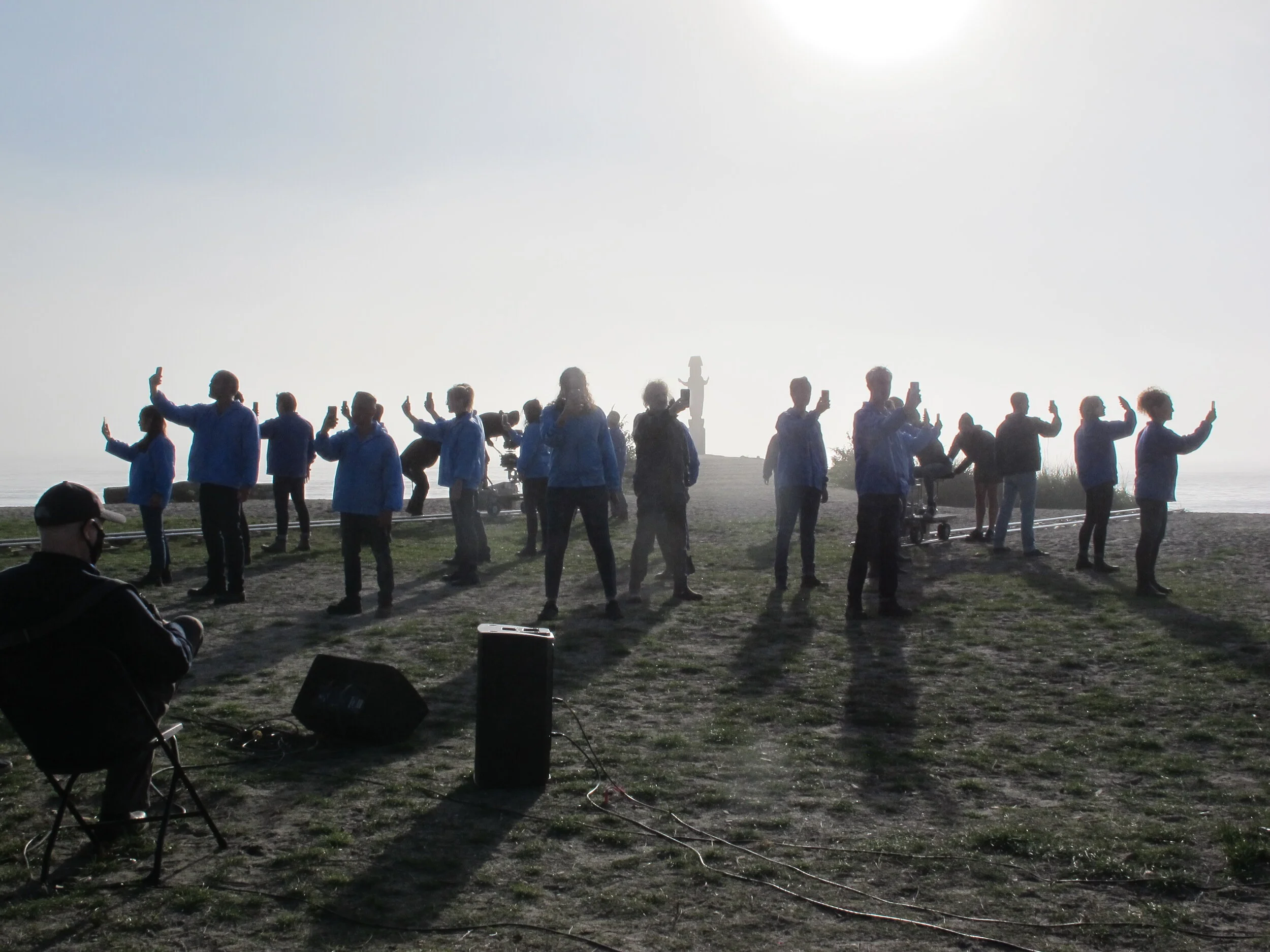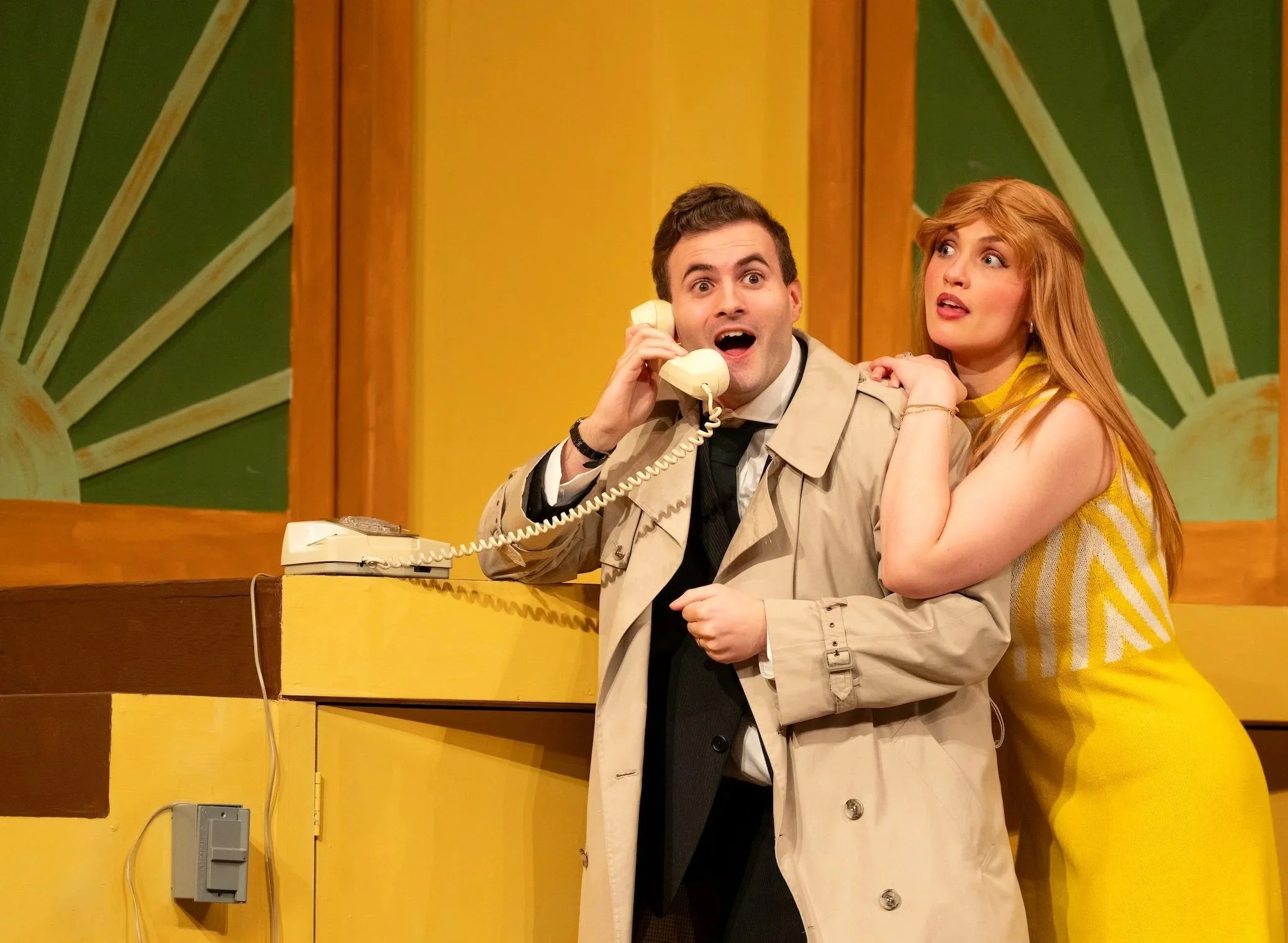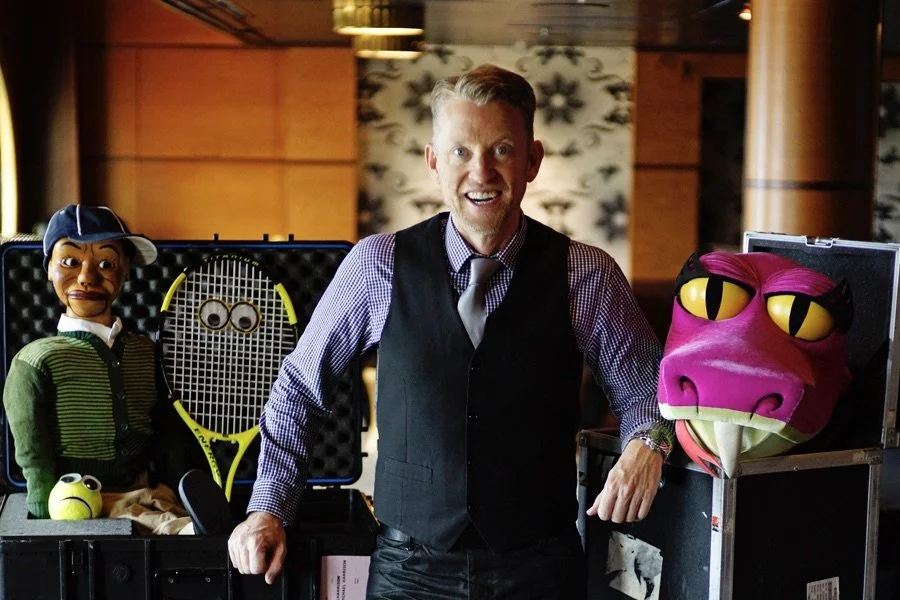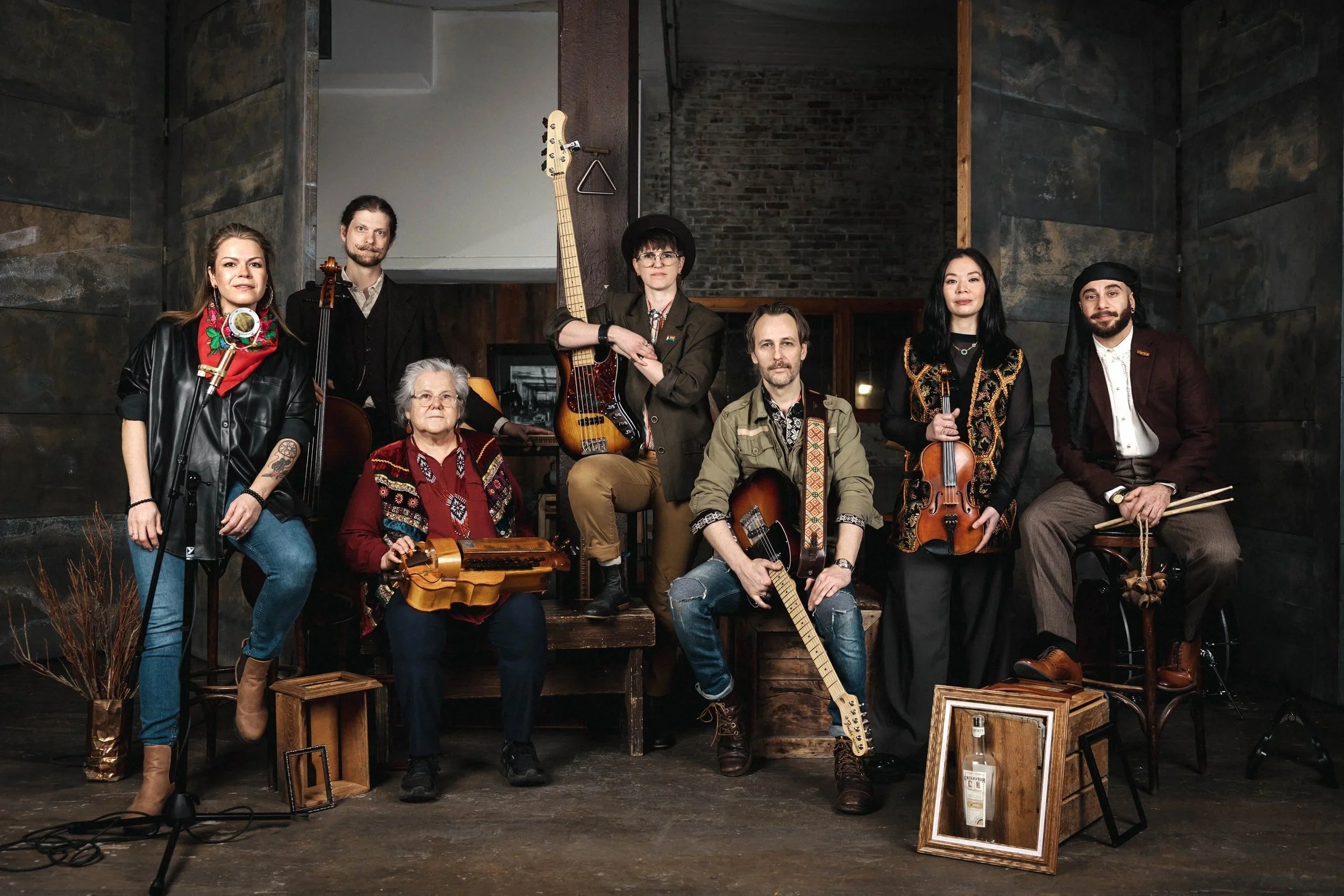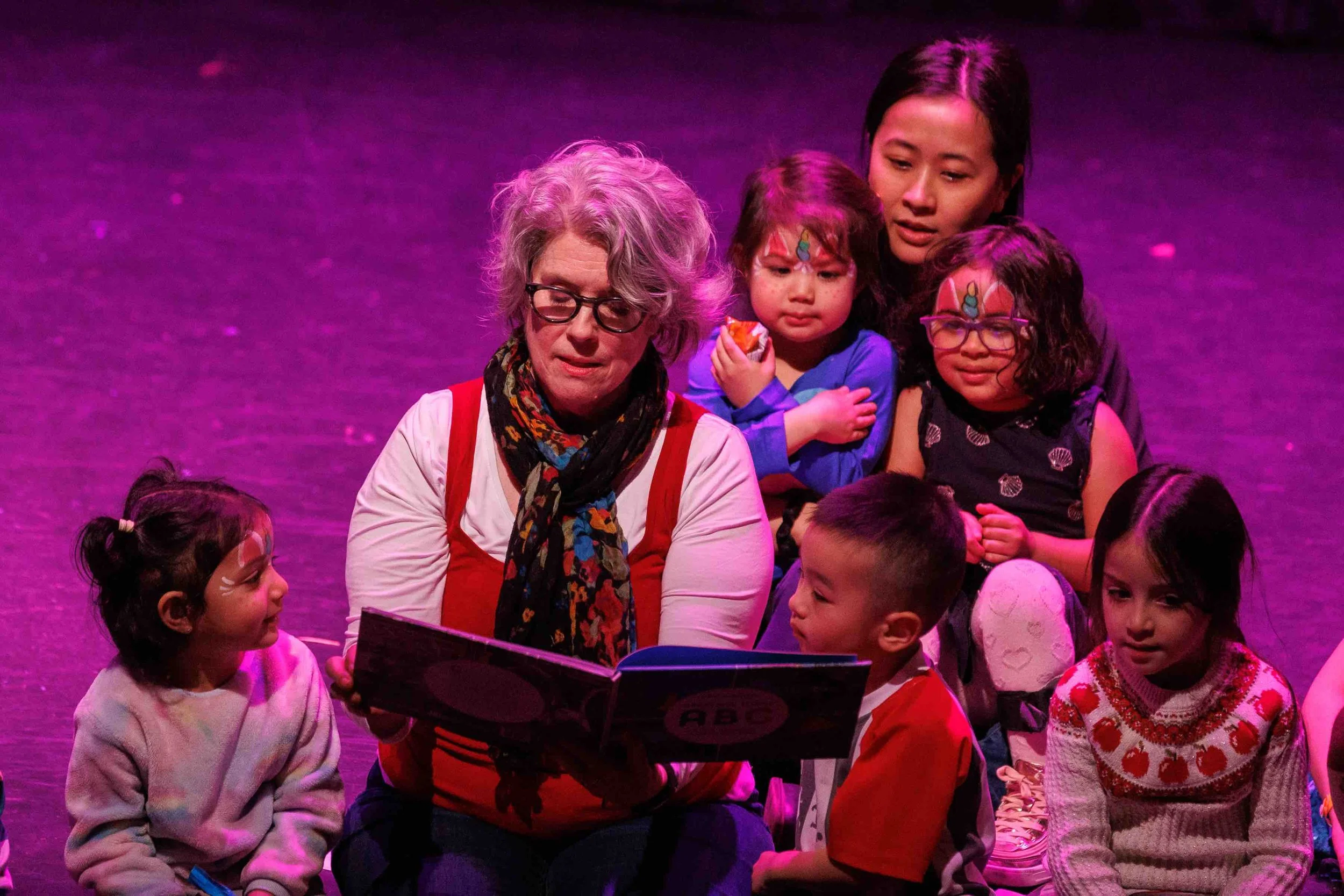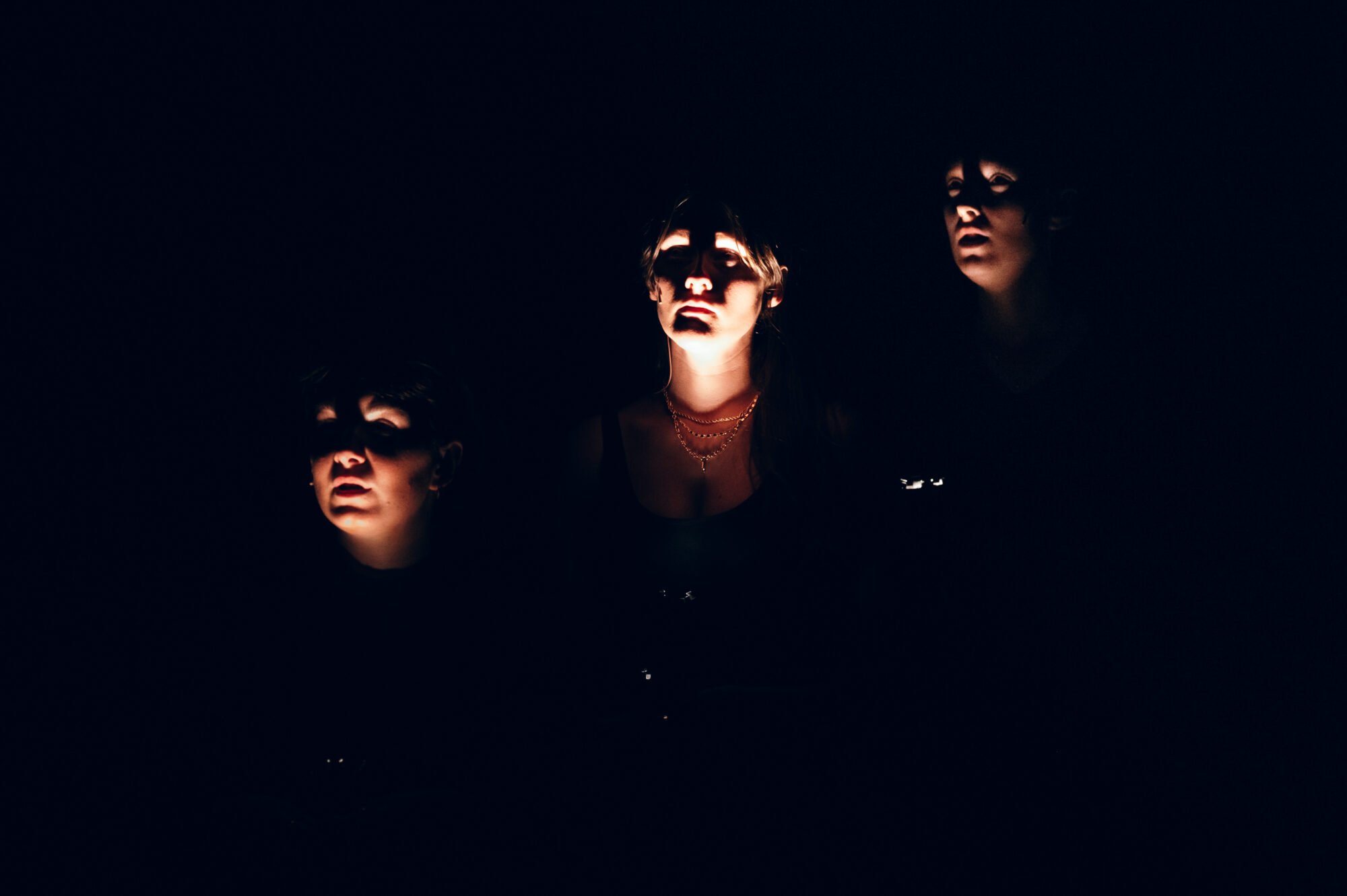Electric Company Theatre's Reframed takes a large-scale look at cancel culture
The film version of the outdoor Grand Acts of Theatre project tackles a controversial subject
Twenty-three actors raise their cellphones in Reframed, Photo by Clayton Baraniuk
A lone victim of a social-media conflict stands ostracized. Photo by Kim Collier
The Electric Company Theatre’s Reframed is available online via the National Arts Centre’s Grand Acts of Theatre site here starting January 7
GIVEN THE UNIQUE chance to stage a large-scale work during the pandemic, Electric Company Theatre did something it’s made its name for: it staged a show that was not just a spectacle, but thought-provoking.
Its incendiary subject? Cancel culture and the world of escalating online attacks.
“We’re very aware that it’s a touchy subject, and that’s why it excited us,” says cowriter Carmen Aguirre, who penned the new piece with ECT’s Kim Collier, Kevin Kerr, and Jonathon Young.
The inventive Vancouver company behind works like Tear the Curtain!, Anywhere But Here, and Betroffenheit had been chosen as one of 12 Canadian troupes for the National Arts Centre’s Grand Acts of Theatre project. The funding initiative tapped them to respond to pandemic times, not just through ambitious live works, but to a wider audience with a series of online films.
“Grand Acts came about after we saw the need for creators to create and audiences to connect that continued after the shut down of COVID,” NAC English theatre artistic director Jillian Keiley tells Stir. “With Grand Acts we are offering an opportunity to be a part of the larger community of Canadian theatre makers, while at the same time giving something for your local audiences to engage with in the meantime. We are hoping that when this is all over, that people’s experience of creating or witnessing Grand Acts is another signature, special aspect of their 2020.”
And so “the Electrics” were tasked with putting on a “signature” work: a public, outdoor performance that would be shot and edited into a shorter film.
“We were interested in creating as much work as possible for as many people as possible in a safe way,” explains Aguirre. “It also had to be a public performance with an actual audience performed outside, and had to be filmed, and had to be a film of five minutes. We knew all that would be a great challenge. And not only that, we knew we wanted to say something with the piece.”
The resulting screen version of Reframed, featuring 23 intricately choreographed Vancouver actors performing in Ambleside Park, finally debuts January 7. Shot on an atmospherically foggy October day with multiple cameras, it melds dance, music, spoken-word rhythms, theatre, and film to portray a group that suddenly turns on an online “friend”.
The show’s creators had been disturbed with conflicts they had witnessed happening online while the pandemic forced people to interact onscreen like never before.
“How often have you gone on screen and you wonder, ‘Would that person say that if they were in the same room?’” says the well-known actor, author, and playwright behind works like Blue Box, The Refugee Hotel, and Anywhere But Here. “I saw that happening in the summer. We wanted to embody and theatricalize what happens in an escalating online discourse.
“At that moment what really interested us was the cancel culture—the witch-hunt behaviour that has been going on in social media for years.”
The terrain is sensitive, she adds, because social media has also been useful platform for justified action. “We wanted to make sure we disentangled that from legitimate calls for justice and equality,” Aguirre explains. “Obviously there are systems that need to be taken down and social media is an important platform for that. That’s not what we're talking about.
Carmen Aguirre
“We’re talking about what happens within an actual community: the idea of going after a colleague simply because they have done or said something that we may disagree with, and really destroying them.”
Within a short window, the team set about writing a taut, biting piece that draws from the short-form social-media speak of texting and emojis. Its opening scene finds the small army of actors, recognizable from local stages, standing in a socially distanced grid, spread across the beach and glued to their phones, chanting in unison “Friend, follow, friend, follow friend.”
Everyone is getting along—until a disagreement ignites. “Cancel.” “Shame.” “Unfriend.” “BLOCK.” That’s when the creators try to physically represent the piling on that can happen when people are interacting at a distance through screens. Eventually one in the group ends up isolated, hurt and alone on Ambleside’s misty shore.
Performing in Ambleside Park, Reframed actors use their smartphones as both weapons and cameras. Photo by Kim Collier.
“We’re talking about a community of colleagues or friends and mobbing someone for saying the quote-unquote ‘wrong thing,’” Aguirre elaborates. “Cancel culture is kind of like a religion with no redemption.
“I myself have been mobbed on social media,” she adds. “The animal brain can’t tell the difference between online mobbing and physical mobbing.”
Faced with social distancing measures that meant the actors perform in a kind of grid, dance artist Justin A. Chambers has choreographed that “mobbing” down to the last millimetre. Iphones become weapons.
They also become multiple cameras in the film version, offering endless perspectives on the action.
Composer-percussionist Joelysa Pankanea helped the team form its poetic online-speak into driving hip-hop-, EDM-inspired rhythms.
“It needed a beat, it needed some action, and it needed forward momentum,” Pankanea tells Stir in a separate phone call. “That’s what cancel culture has: forward momentum. Cancelling: it’s a scary thought that you can’t undo.”
As a seasoned musical director with companies like Bard on the Beach and the Arts Club, Pankanea is used to working with large ensembles. Here she plays with the idea of a mass group of voices--an almost choral expression of social media interaction. “It can be so hair raising to have 30 people saying something quietly rather than someone shouting it,” she comments.
In the beginning, unison chants of “Friend, follow, friend,” Panakanea aims for something almost artificially upbeat that starts to degrade. The mood is heightened on film by the electro score.
“I wanted something very fake and saccharine at first, and by the end where they’re blocking someone, it has a different vibe,” she says. “Slowly that gets into a very interesting hip-hop groove...and then moves to a really dark techno. It gets dark and jarring, and then there’s this levelling it out to this drone at the end--this suspension, this limbo.”
With the driving musical trajectory of the piece, Pankanea wants the viewer to be drawn in to question their own complicity in cancel culture.
“There’s a lot of trolling; it’s an inflammatory topic and unfortunately a lot of people get offended before they listen,” says the composer, who was drawn to the project by the timeliness of the subject. “Even the darkness is written to be quite pleasing; it’s very pleasing for people to hear a groove and a beat.
“I wanted people to bob their heads right through the cancelling of a human being and be on board with that.” she adds. “Then it’s, ‘What am I doing here? I don’t like what I’m seeing. What’s my role in it?’”
Reframed builds to an intense and moving conclusion in its five-minute film, joining an equally compelling range of Grand Acts of Theatre from across the country, Together, they offer an array of form-pushing reflections on this unprecedented moment.
"We have everything from performers in boxy apocalyptic costumes with Cassandra-style warnings pasted all over them, dancing wildly to Juno Award winning musicians on a St.John’s harbour dock, to a giant full-person string game outchasing a blizzard in Iglooluk, to The Electric Company’s anthropomorphized emojis in Vancouver; puppet lanterns, wedding ceremonies in Zorb balls, a visit from Queen Victoria to Unceded Land in Saskatchewan, a dance performance in front of the original Mohawk residential school, featuring live 3-D mapping of the building burning," remarks Keily. "There are more than that too! It’s a great series, and although the prompt was the same-- 'Make something that will tell a story of these times'--it's wonderful how different the offerings were!"


